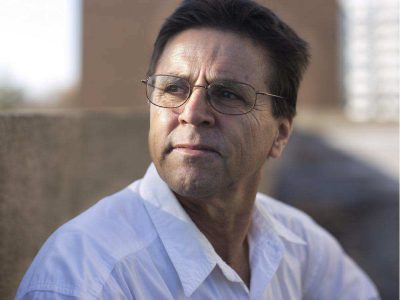Global Research, July 27, 2019
Hassan Diab Support Committee 25 July 2019

We were informed that the Department of Justice will release tomorrow (Friday July 26) the findings of an external review of Dr. Hassan Diab‘s extradition to France in 2014.
The external review was conducted by Murray Segal, former Deputy Attorney General of Ontario. Mr. Segal was asked to assess whether Department of Justice officials followed the law and departmental procedures while pursuing France’s request to extradite Diab.
Background
Dr. Hassan Diab is a Canadian citizen and sociology professor who lives in Ottawa. He was extradited from Canada to France in November 2014, even though the Canadian extradition judge, Robert Maranger, described the evidence presented against Diab as “very problematic”, “convoluted”, “illogical”, and “suspect”. However, given the low threshold of evidence in Canada’s Extradition Act, the judge felt compelled to order Diab’s extradition.
Diab spent more than three years in prison in France while the decades-long investigation in his case was ongoing – this despite the fact that Canada’s Extradition Act only authorizes extradition to stand trial, not to continue an investigation.
In January 2018, the French investigating judges dismissed all charges against Diab and ordered his release. They stated that there is consistent evidence that Diab was not in France at the time of the 1980 bombing in Paris that tragically killed four people and injured dozens. They also notably underlined the numerous contradictions and misstatements contained in the anonymous intelligence, and cast serious doubts about its reliability. The investigating judges also stressed that all fingerprint and palm print analysis excluded Diab.
Shortly thereafter, Diab was released from prison in France, and returned to his home and family in Canada. He had spent almost ten years of his life either imprisoned or living under draconian bail conditions, including more than three years in near solitary confinement in a French jail.
In June 2018, CBC News reported that a key fingerprint analysis exonerating Diab was not disclosed to the court in Canada during the extradition proceedings. The court in Canada was told that no such evidence existed, when in fact the fingerprint analysis that excluded Diab was done in early 2008, many months before France requested Diab’s extradition. CBC News also reported that in 2009 a senior lawyer at the Canadian Department of Justice (DOJ) urged the French authorities to obtain new handwriting ‘evidence’ against Diab when the extradition case was about to collapse. In another effort to shore up the case, the DOJ lawyer requested another fingerprint analysis of a police document signed by the suspect as he believed that the evidence would be very powerful in getting Hassan extradited. When the RCMP fingerprint analysis excluded Diab, the DOJ lawyer never disclosed this fact to the court in Canada or to the defense.
Numerous human rights, civil society organisations, and labor unions – including Amnesty International Canada, British Columbia Civil Liberties Association, Canadian Association of University Teachers, the Criminal Lawyers’ Association, the International Civil Liberties Monitoring Group (ICLMG), Canadian Union of Public Employees (CUPE), among others – have called on the Canadian government to conduct an independent public inquiry into Diab’s extradition, as well as to undertake a complete review of the Extradition Act so no other Canadian would go through what Hassan Diab and his family had to endure.
*
Note to readers: please click the share buttons above or below. Forward this article to your email lists. Crosspost on your blog site, internet forums. etc.
Featured image is from Ottawa Citizen
The original source of this article is Hassan Diab Support Committee
Copyright © Hassan Diab Support Committee, Hassan Diab Support Committee, 2019
Related
The views expressed in this article are the sole responsibility of the author and do not necessarily reflect those of the Blog!

No comments:
Post a Comment